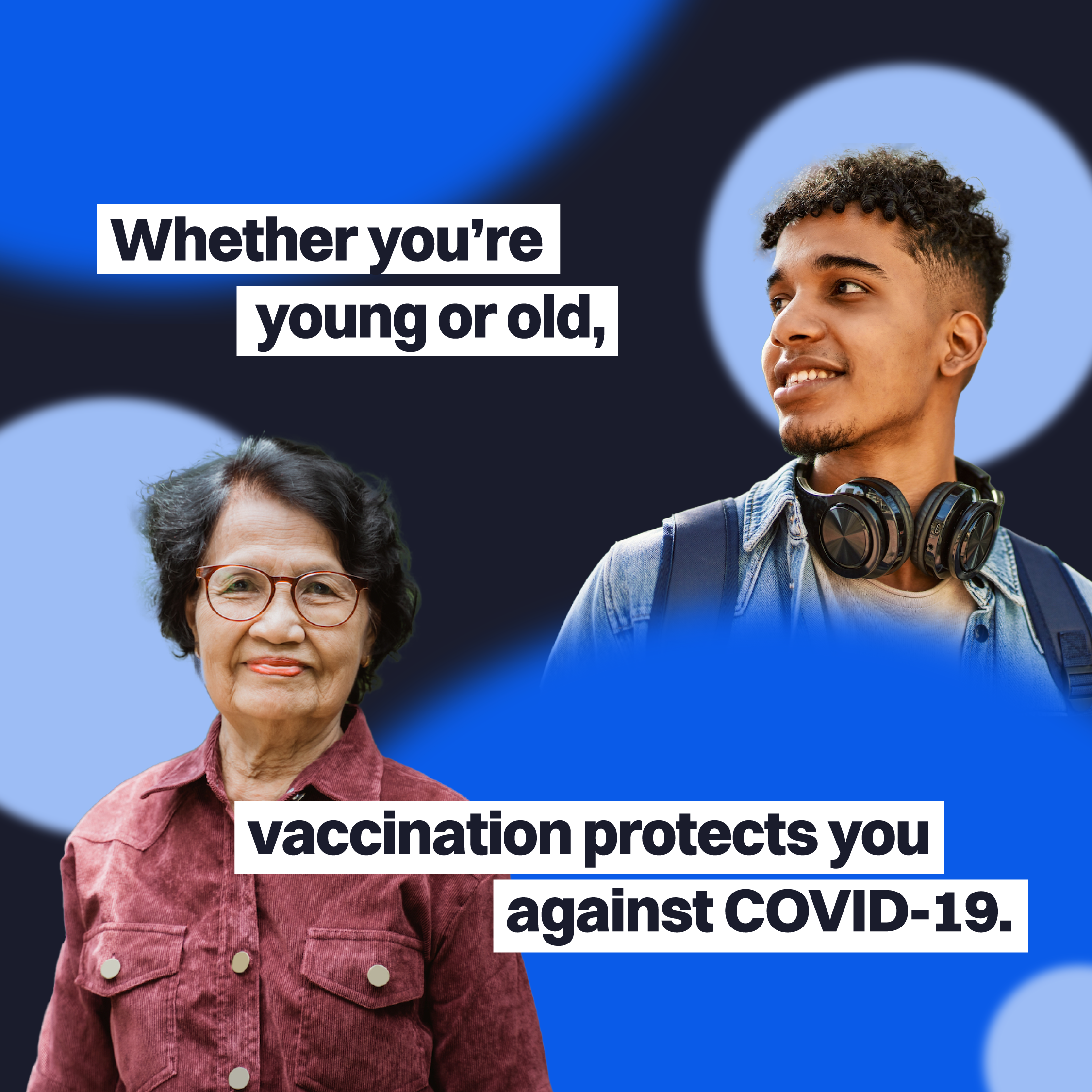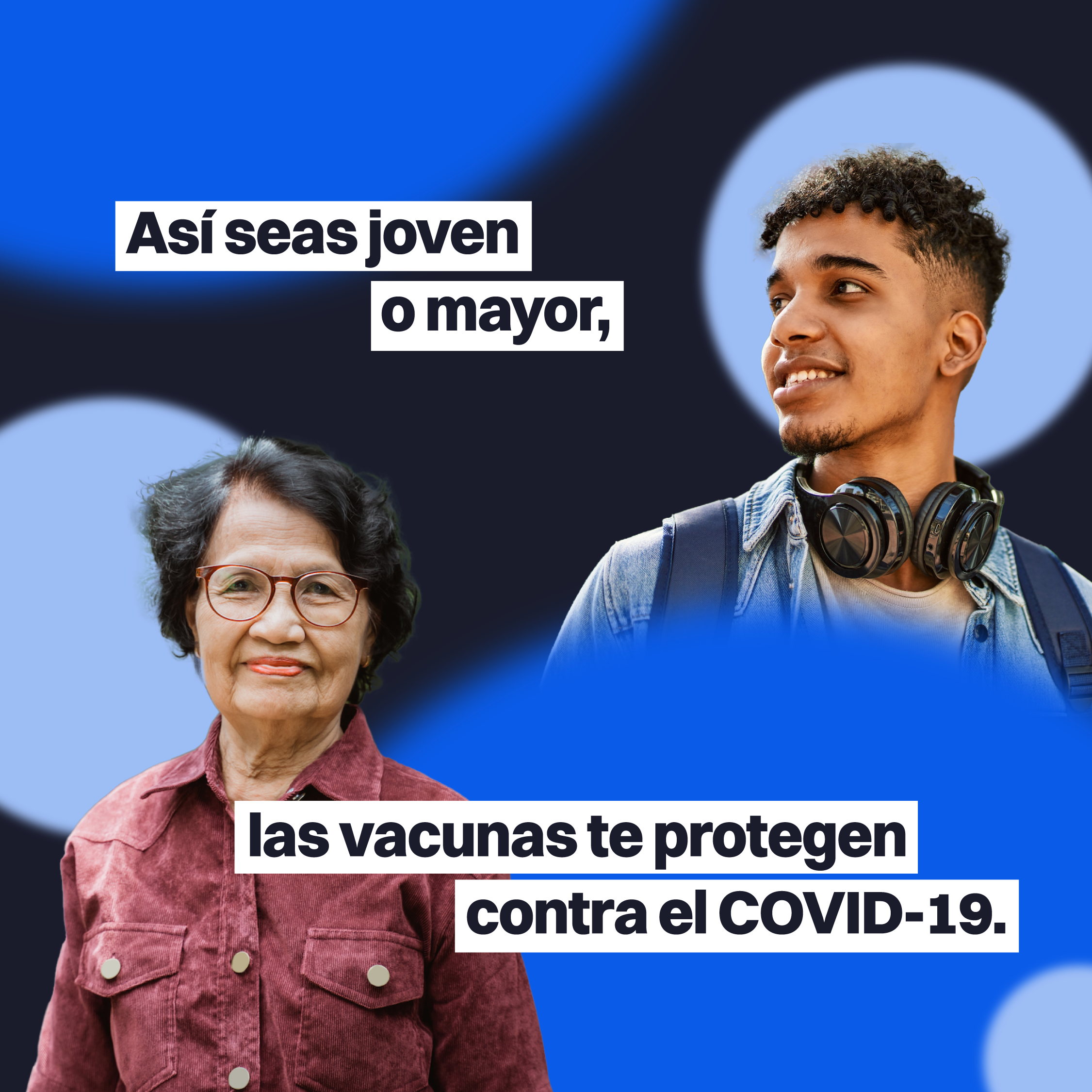Vaccine recommendations for older adults spark online debate
In recent weeks, myths about COVID-19 vaccine safety recirculated online as vaccine opponents targeted vaccines meant for the most vulnerable populations. The CDC’s recommendations for additional immunizations for older and immunocompromised individuals garnered a mixed response online. A non-peer reviewed study was used to falsely claim that only mRNA COVID-19 vaccination—and not COVID-19 infection—is linked to myocarditis in children and teens. Meanwhile, several popular social media posts claimed without evidence that older adults are being forcibly or deceptively vaccinated.
For even more resources, check out the menu above for real-time insights, training resources, and more. Specifically curated for people working in health care and public health, these links provide actionable content to help navigate today’s information landscape.
Trending narratives from the past month
COVID-19 and pneumococcal vaccine recommendations spark online debate
On October 23, the CDC’s vaccine advisory committee, ACIP, met to discuss several vaccines. The committee voted to lower the recommended age for pneumococcal vaccination from 65 to 50 and to recommend an additional dose of the 2024-2025 COVID-19 vaccine for older adults and immunocompromised individuals six months after their first dose. Some social media users applauded the committee for simplifying COVID-19 vaccine recommendations for older adults. However, vaccine opponents criticized the recommendations and questioned the need for multiple vaccine doses. One popular post accused the CDC of “poisoning vulnerable elderly people.” Read the fact checks here and here.
Viral posts falsely claim myocarditis only occurs after COVID-19 vaccination
Vaccine opponents resurfaced the false claim that myocarditis and pericarditis in children and adolescents only occur after mRNA vaccination and not COVID-19 infection. The claim is based on a preprint Oxford University study that examined outcomes after Pfizer COVID-19 vaccination in the U.K. The false narrative about the study and the misrepresentation of its conclusions have been circulating online since May, when the study was posted online. Despite misleading claims from vaccine opponents, the study did not compare heart inflammation rates after vaccination with those after infection and did not analyze data that would have allowed any conclusions about heart inflammation risk after COVID-19 infection. Read the fact checks here and here.
Doctors accused of tricking older adults into getting vaccinated
Several popular social media posts are claiming that older adults are being tricked or forced into getting CDC-recommended immunizations, including vaccines against the flu, COVID-19, and pneumonia. The basis for the claims is second-hand anecdotes shared online anonymously. One post urged people to accompany older family members to the doctor to decline vaccination on their behalf, while another claims that patients are being vaccinated without informed consent. Some posts suggest without evidence that the coadministration of multiple vaccines is unsafe, with one person claiming that multiple vaccinations killed his father. Read the fact checks here and here.
What you might say in response
The CDC recommends an additional COVID-19 vaccine dose and a pneumococcal vaccine for the most vulnerable populations.
- The CDC’s recommendations provide additional protections for older adults and immunocompromised people.
- The advisory committee lowered the recommended age to get a pneumococcal vaccine from 65 to 50 and recommended that adults 65 and older and immunocompromised people receive a total of two doses of the 2024-2025 COVID-19 vaccine six months apart.
- Both recommendations are based on real-world data showing that older adults and immunocompromised people are particularly vulnerable to COVID-19 and pneumonia and make up the majority of hospitalizations and deaths from the diseases.
- Vaccination significantly reduces the risk of COVID-19 and pneumonia.
Vaccination is the best way to protect your child and your family against COVID-19.
- COVID-19 infection can cause serious long-term complications in children, including increased risk for heart issues and diabetes.
- Vaccination reduces your child’s risk of becoming seriously ill from COVID-19 or developing long COVID.
- mRNA COVID-19 vaccines are associated with an extremely low risk of heart inflammation in adolescents and young adult males. However, many large-scale studies have shown that COVID-19 vaccines are safe, and the risk of heart complications is far higher after COVID-19 infection than after COVID-19 vaccination.
Vaccines are life-saving for older adults and immunocompromised people who are at higher risk from respiratory viruses.
- Certain vaccines are recommended for older adults and immunocompromised people because they are at the highest risk of severe illness and death from diseases like COVID-19, the flu, and RSV.
- The vaccines recommended by the CDC are rigorously tested for safety and effectiveness in all eligible populations.
- The CDC advises that getting multiple vaccines in one appointment is safe, and there is no evidence of negative interactions from receiving the flu and COVID-19 or RSV vaccines at the same time.
What we’re reading
- Medscape: How Doctors Can Overcome Vaccine Hesitancy Through Empathy, Storytelling, and Patient-Centered Communication
- Science: The five biggest challenges facing misinformation researchers
- News-Medical: Study finds minority patients less likely to refuse vaccines
- The Conversation: Being mentally flexible might influence our attitudes to vaccination, a new study shows
Studies and trainings
- Cureus: Flu-Phobia: Influenza Vaccine Hesitancy in a Rural Primary Care Setting
- American College of Allergy, Asthma and Immunology: Vaccine Refusal Lower in Minorities in New Study
Interested in learning more about how to debunk false claims with patients? Check out the new Infodemiology Training Program. In videos that range from 5 to 10 minutes each, the program introduces health care providers to the basics of infodemiology and provides you with actionable skills to help improve patient care. Get started today.
Quick response media assets
Below, we've provided a social media asset in English and Spanish. Use these assets on social media to fight false claims and help provide your network with accurate information. Just right-click the asset, or press and hold on mobile, to download.

Proposed social copy:
People of all ages benefit from staying up to date on COVID-19 vaccination. Getting vaccinated reduces your risk of severe illness, hospitalization, and long COVID.

Publicación propuesta:
Las personas de todas las edades se benefician de mantenerse al día con las vacunas contra el COVID-19. Vacunarte reduce tu riesgo de enfermarte de gravedad, ser hospitalizado y desarrollar COVID prolongado.
